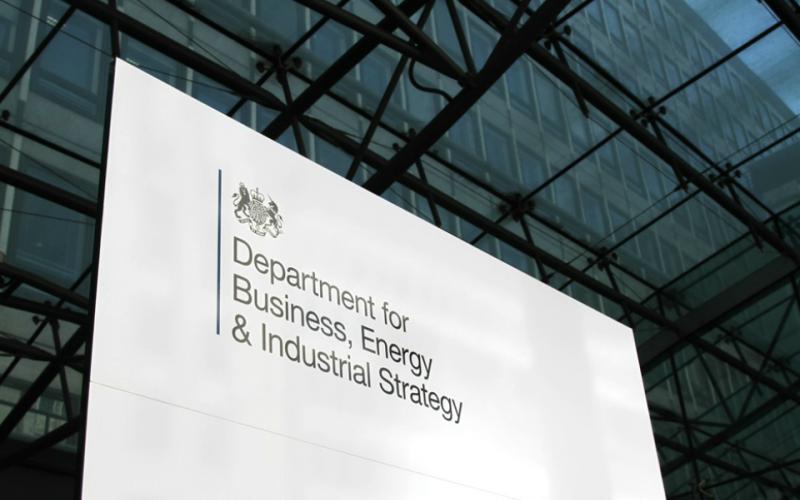‘Flexibilities’ in meeting the UK’s fourth and fifth carbon budgets remain “on the table” despite hefty criticism from the government’s climate change watchdog.
That was the view given by the Department of Business, Energy and Industrial Strategy’s (BEIS) deputy director of clean growth and carbon budgets, Olivia Haslam, speaking yesterday at Ecobuild.
BEIS came in for strong criticism from the Committee on Climate Change and the BEIS select committee when it released its Clean Growth Strategy (CGS) in October with a 6% and 9.7% shortfall in meeting the UK’s 2027 and 2032 carbon budgets respectively.
It said these gap could be met by the use of ‘flexibilities’, which would allow the government to use additional savings from previous budget periods to make up underachievement in the future.
This prompted the CCC to call the plan “insufficient” in its response to the CGS, calling for more ambition “as a matter of urgency”.
Despite this feedback, Haslam maintained that such measures could still be used when asked by CEN how the department planned to use policy to make up the shortfall.
“As it says in the strategy, we have some options around carrying forward savings from earlier carbon budgets which is something that is still on the table,” she said.
However, Haslam also explained that since the CGS’ publication, the expected shortfall has been reduced across the two carbon budgets periods under discussion.
Energy and emissions projections published in January place emissions reductions at 97% of what is needed under the fourth carbon budget and 95% of the fifth carbon budget.
She also maintained that BEIS “haven’t yet quantified the carbon savings” from some of the policies outlined in the CGS, as they are “not fully developed enough yet for us to know exactly what they will contribute”.
She continued: “We’ve also taken quite a cautious approach to factor in what we might gain from innovation which is a really big part of the strategy.
“Given the fact we haven’t quantified everything yet and included the whole benefits of innovation, we’re reasonably confident we can get there through our policy action.”
The CCC has already stated it will seek to hold the government to this promise, with chair Lord Deben stating “there is no question of using banking”, referring to using previously achieved carbon savings to meet future targets.
‘We’re not running fast enough’
Haslam was joined on stage by representatives from the sustainability sector, who urged her and the department to ensure that enforcement of regulation across the built environment is strengthened under the CGS.
Myles McCarthy, director of implementation at Carbon Trust, echoed the CCC’s calls for more urgency in meeting the legally binding carbon reduction targets of the UK, saying: “We know where we’ve got to get to and we’re not running fast enough.
“The pressures on change are not strong enough, we should have ratchets in place. We know we have to reach these levels, let’s stop messing around…things have to be turned up.
“We’ve got the legally binding targets but we’ve got to make sure that everyone involved [is] playing their role.”






